
Novel Train
By RONALD S. LIM
September 24, 2010, 11:22am
Reprinted from the Manila Bulletin
There’s an old saying that goes, “Too many cooks spoil the broth.”
But that is not the case with “Angelica’s Daughters: A Dugtungan novel.”
Collaboratively written by five woman authors, the novel is a historical romance tracing the romantic adventures and misadventures of a family of strong-willed women through centuries.
The novel is brainchild of five equally talented writers – Cecilia Manguerra-Brainard, Erma Cuizon, Susan Evangelista, Veronica Montes, and Nadine Sarreal. But what is even more amazing is that a huge part of it was constructed without the authors even meeting each other face to face!
Gathered by Brainard in 2002 through the Philippine American Literary House, the women had initially started out as online workshop participants working on a writing prompt every week. The idea of doing a collaborative work was still far from their minds.
“Every week we would have a theme or a sentence to start. It was just casual, nothing structured,” recalls Nadine Sarreal.
“I heard about this workshop and I wrote to Cecilia and asked if I could join. I thought that it would be fun and that it was an interesting group of people,” adds Susan Evangelista.
It wouldn’t be long before the group would find itself looking for a bigger challenge in the form of the dugtungan, a form of collaborative writing popular during the 1920s and 1930s. Their first attempt would be a short story.
“We just wrote an unrequited love story with a comic twist. We sent it off for publication and it got accepted, but it took three years before it came out. We were joking that they accepted it but they’re not going to publish it,” recalls Sarreal with a laugh.
NO FIVE EGOS
After that initial success, the group set its sights on an even bigger goal – writing a full-blown novel. With no specific assignments in mind, the group members found themselves gravitating towards the threads of the story that they were most comfortable in.
“The groupings kind of grew organically. We only had a loose idea of what was going to happen. As it progressed, it just sort of happened that Veronica and I were working on the modern story and Nadine and Cecilia were working on the other one,” says Evangelista.
“We gravitated towards our natural partners. Nobody gave any orders to anybody, no one was dictating anything. The outline came as we went but it wasn’t set in stone,” says Sareal.
The experience, however, wasn’t always smooth sailing. With a bigger plot to contend with, the members of the group would sometimes find themselves at odds with each other.
“Sometimes it was hard. Sometimes, you would get an idea of where you thought something was going, and then the next person would violate your ideas,” says Evangelista. “It was difficult of letting go once other people changed what you had written.”
“I did have a difficult time. I wanted it to go a certain way but the group had decided that they were going to do it a certain way,” admits Sarreal. “There were disagreements, but Cecilia kept us on track whenever things started to go too crazy. Otherwise, it would be five egos going five different directions.”
These minor disagreements, however, would prove to be the least of their problems. When the group submitted an initial draft of the story to Anvil Publishing, the novel got a scathing reception from the critic the publishing house had LIMasked to review the book.
“When we first gave the book to Anvil, they gave it to a critic who absolutely panned it. He said that it had no unity. He said that it was going in too many directions. Our hearts were on the floor. We felt discouraged,” shares Evangelista.
It would take a few months before the group would start working on the novel again, but Sarreal says that the less than flattering review of their earlier work had only spurned them to come up with an even better work.
“We shut down after the critic. We couldn’t write. But there was chatter on the e-mail na kaya natin ito. We slowly as a group kind of rebuilt our confidence,” says Sarreal. “It was for our own psychic health that we finished it just to show that we could rise above what the critic said about us.”
And indeed, the group did have the last laugh, as Anvil Publishing did put out “Angelica’s Daughters”.
“We didn’t have any expectations about getting published. We still would have finished the novel even if there were no offers to be published, but maybe not in such a refined form,” says Sarreal.
WRITING INTO FREEDOM
Both Sarreal and Evangelista agree that the reason everything worked out in the end was the fact that the group had built a strong rapport throughout the years they have been working and writing together online.
“We were a little inhibited at first, but over the years we wrote into freedom. We were freer with each other. We got to know one another’s personalities. The rapport is easier,” says Sarreal.
This understanding of each other’s styles and personalities are invaluable in any collaborative work, according to Sarreal.
“We were all in a workshop together and we understood each others style. We recognize how we are, and we know how to shift and adjust and work with each other without even talking about it,” she shares.
Both Evangelista and Sarreal agree that working together has not only improved their individual writing styles, but has given them confidence with regards to their own skills.
“I would see how much could be done with things. People would see good things in my work that I didn’t see,” explains Evangelista. “Maybe I haven’t learned how Nadine does her detailed histories, but I certainly have learned how to appreciate it.”
“I like working with the group because writing is so solitary. You don’t know if what you’re writing is making any sense. I really valued when somebody would tell me gently things about my work. It’s really improved the way I write,” adds Sarreal.
For writers looking to try out this collaborative form themselves, Sarreal says an open mind is essential if they want their efforts to succeed.
“Writers who want to try this out have to decide how they feel about being directed, so the work comes out still being creative without any of you guys struggling with each other because we’re already struggling with each other,” she says.
But perhaps even more importantly, writers looking to try this out should come into it with a light heart.
“Do it for fun. Be relaxed about it. Don’t be so serious about it that you get aggressive. What fun is that?” ends Sarreal.





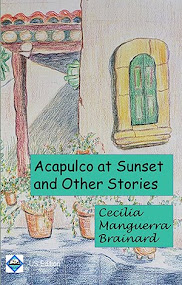



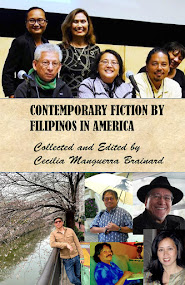
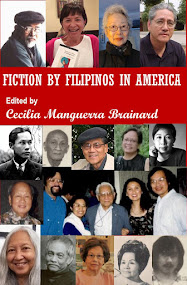



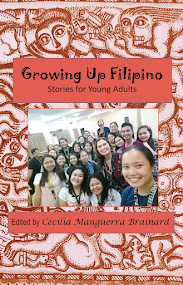
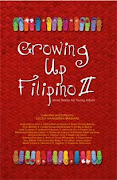


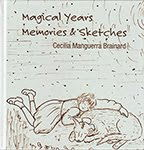


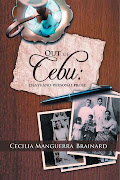





No comments:
Post a Comment